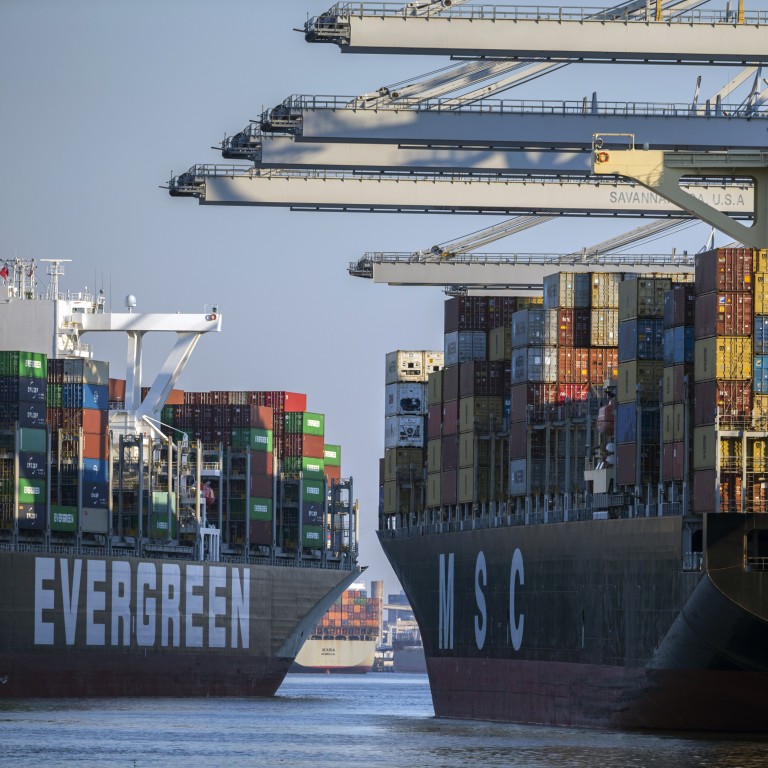
US-China relations: ‘vague’ investment screening plan leaves questions on scope and execution
- The America Competes Act of 2022 contains a proposal for a new outbound review process that would screen investments in offshore supply chains, notably in China
- Though there is bipartisan political support for the investment regime, it is not yet clear what shape it will take or how it will impact US firms in China, say experts
Tension with China is propelling the creation of a new outbound investment screening regime in the United States, but significant uncertainty remains about how it will be implemented, analysts say.
Analysts have mixed views on whether the new screening regime will be passed by Congress this year, but with national security concerns at the top of the agenda in Washington, there is support from across the political divide.
“Given that being tough on China is the only bipartisan issue right now, I fully expect the new screening regime to be put into place,” said Taylor Loeb, an analyst at Trivium China.
The US wants to diversify supply chains away from China, or at least develop backups
“The US wants to diversify supply chains away from China, or at least develop backups. The screening regime is, at its core, designed to do exactly that.”
Charlie Vest, senior research analyst at Rhodium Group, said although there was a lot of interest in a new outbound investment regime, it was “not yet clear what form it might take”.
Vest said the language of the act “leaves open many questions about process, scope, and implementation”.
‘Do not travel’: US warns against travel to China due to strict virus rules
“Because of these unresolved issues, even a tough-on-China Congress may well choose to leave that language out of the final bill.”
Matthew Kroenig, deputy director at the Scowcroft Centre for Strategy and Security at the Atlantic Council, said there will be a “selective decoupling” between the US and China on some critical national security, technology, medical, energy products and supply chains.
“The US-China relationship will not go back to the pre-Trump period [and] the legislation [on FDI screening regime] will be coming anyway,” he said, citing a previous export control guideline passed by the US Congress and turned over to the US Commerce Department to enforce.
Christopher Smart, chief global strategist and head of the Barings Investment Institute, said China had become a “political issue” in the US, but he also highlighted the influence of American businesses amid the worsening US-China relationship.
“There are always some reasons for some people in Congress to take tough action,” he said. “But companies will push back in order to encourage a better relationship.”
The “vague criteria” of the proposed legislation could slow down US businesses and make them less competitive, said Eric Zheng, president of the American Chamber of Commerce (AmCham) in Shanghai.
“According to an AmCham Shanghai survey, 53 per cent of its member companies produce or source goods or services in China for the China market,” he said.
“The US has the technology while China is a great place to commercialise that technology.”
Zheng said Washington’s efforts to isolate China would not be effective because it could turn elsewhere, including to Europe, to get similar technologies or develop its own.
US Trade Representative Katherine Tai said earlier this month during a trip to Singapore that the US is seeking to realign its commercial ties with China rather than seek a “divorce”, following a congressional hearing in which she said discussions with Beijing had become “unduly difficult”.
“I think true decoupling of the US and Chinese economies isn’t going to happen, at least not in the foreseeable future,” said Clark Packard, research fellow at the Cato Institute.
Despite the tensions, there is an enormous amount of trade and investment that still takes place
“Despite the tensions, there is an enormous amount of trade and investment that still takes place between the United States and China.”
The US trade in goods with China amounted to around US$657 billion last year, up from 17.5 per cent from 2020, according to database Statista.
In the short term, analysts said more import tariff reduction or elimination for Chinese goods is one way to alleviate inflation pressure in the US, but Russia’s invasion of Ukraine has further complicated the situation.
“If China supplies military equipment to Russia, progress on any issue in the US-China relationship will be very difficult,” said Stephen Orlins, president at National Committee on United States-China Relations.
“If China plays a constructive role, improvement on a wide range of issues is possible.”


